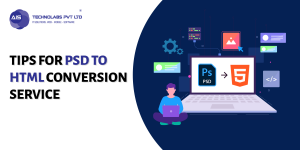Nowadays, all customers expect that the website they visit will be compatible with their mobile device. Therefore, it is necessary for all mobile app development companies to design a highly responsive website that is compatible with various devices and screens. In the next five years, we will come across various modern technologies, and we should remain ready to use them and incorporate them into a website without impacting its performance.
What is a Responsive Website?
The technique of generating the information of your website in a manner that is adaptable to a wide variety of screen and window sizes is known as a "responsive design." Desktop screens, for instance, are often large enough to support a layout that divides your content into several columns. It is more difficult for customers to read and interact with your material when it is on a mobile device with many columns. Because of responsive design, your content and design may be transmitted to various devices in different unique layouts, depending on the screen size. Some primary factors for the launch of a responsive website are along the following lines:
1. Performance
You must assess the performance of your website before launching it. The most important thing for most businesses to focus on is not on search engine optimization but rather on their bottom line. If your website takes more than 10 seconds to launch a page, 30 percent of mobile visitors will leave it. So, checking and improving your website load time is essential. You can seek assistance from AIS Technolabs, a professional web design company in India to improve your website performance.
According to research, customers' behaviors changed depending on how long it took online pages to load. It also shows that customer satisfaction drops by 16 percent for every second delay in a website's performance, and 79 percent of buyers said they would be less likely to return to the site.
2. The Dimensions of the Display Screen
When designing a responsive website, it is essential to keep in mind the various screen sizes on which your users will access your website. A responsive website will automatically adjust the size of its text, pictures, and icons to fit within the confines of the available display area. Knowing what devices may access your web app, it is crucial to create the website properly.
3. Compatibility
When you hire web developer, you must ask for the website compatibility with other devices or software applications. Before launching your website, you should conduct a compatibility test to check its functionality on several essential platforms. It gives you an idea of how your users will interact with your website through various devices. After thorough testing, you can make specific changes if required.
4. Markup and Styles which have been optimized for performance
Regarding markup and style, compressing your CSS, HTML, and scripts leads to more significant optimization. It is particularly true when it comes to markup. The pictures and content on your website are brought to the forefront thanks to the usage of HTML and CSS codes. The website will load a lot faster if the markup and styles are understandable and have some significance. You may design sites that load quickly with the assistance of optimized markups, but speed is the one benchmark that RWDs cannot meet.
5. Design your Components for the Small Screen.
You should design your website components for a small screen. It helps to load your website on a small screen efficiently. If you want to deliver the best user experience possible on a device with a small display, you will need to be willing to give up certain features. You must hire professional companies who have the relevant experience.
On a desktop website, for instance, the menu and navigational options take up significant space. Wherein on mobile devices, it takes a single icon or button. Having a navigation panel that is compatible with mobile devices is essential.
6. User Experience
The user experience should be at the center while developing a website. As it easy navigation, simple feature decides the success rate of any website. If you include images or videos with too many visual elements, then the website may take several more seconds. It may impact your user experience, as users want information quickly at their fingertips. When directing the attention of the user, it is necessary to prioritize the content and utilize clear visual cues to steer them in the appropriate direction.
What are some Key Benefits of having a Responsive Website Design?
Having a website that is viewable across various devices is beneficial, as you do not know what devices your users are using. A responsive website appeals the mobile and desktop users equally. Mobile users will eventually surpass desktop users as globally smartphone accessibility is increasing at a rapid pace. Therefore, having a responsive website design has many benefits like below.
Improves Search Engine Optimization
Many companies and organizations use SEO to increase their search engine ranking. If your products or services are closer to the top of the list, prospective customers will have an easier time finding you. According to Google, responsive website design may help you rank your website higher, as Google gives more importance to easy accessibility. In terms of SEO, responsive website design is an SEO-friendly characteristic.
Lowers overall expenses
Maintaining separate websites for mobile and non-mobile customers increases the overall expense of doing business. If you use responsive design, you won't need to pay for a different mobile website and mobile app development, which means you can save some money. To make your website seem captivating across all of your site visitors' devices, you will only need to invest money in a single website design.
Makes managing the website easier
When it comes to maintaining the most current appearance and functionality of websites, businesses of all sizes face various issues. A website with a responsive layout, on the other hand, enables you to make changes to it quickly and easily, without the need to involve a designer in the process.
Flexibility
You can make modification quickly and without difficulty on a responsive website design. You have nothing to worry about when it comes to making changes to two distinct websites simultaneously. Because of this flexibility, if you need to make a minor adjustment to the layout of your website or correct an error, you will only need to do it once.
How can AIS Technolabs help you launch a Highly Responsive Website Design?
Taking help from a professional web design company like AIS Technolabs is a wise decision. As AIS Technilobas offers a wide variety of services that can easily address your needs. Experts of AIS Technolabs are experienced and have developed responsive websites for all industry verticals.
You can visit AIS Technolabs to learn more about responsive web designing and consult with our experts for more information on how much it would cost to create a new website and other benefits that we did not include in this piece. You can hire web developer at your convenience who will give you a free quote that is completely tailored to your needs and help you boost your revenues.
Conclusion
When it comes to responsive website design, performance and look are both significant considerations, but they are not the only ones. Instead, designers need to approach their job in a different manner than they traditionally have in the past. If you want your website to be successful on a small screen, you must ensure that it provides a pleasant experience for its users (UX). Consider how the choices you make during design will impact the usability of the navigation components on the devices that people use. If you implement this feature correctly, your users will never be left wondering what steps to take next. For designing a responsive website, connect with AIS Technolabs!






